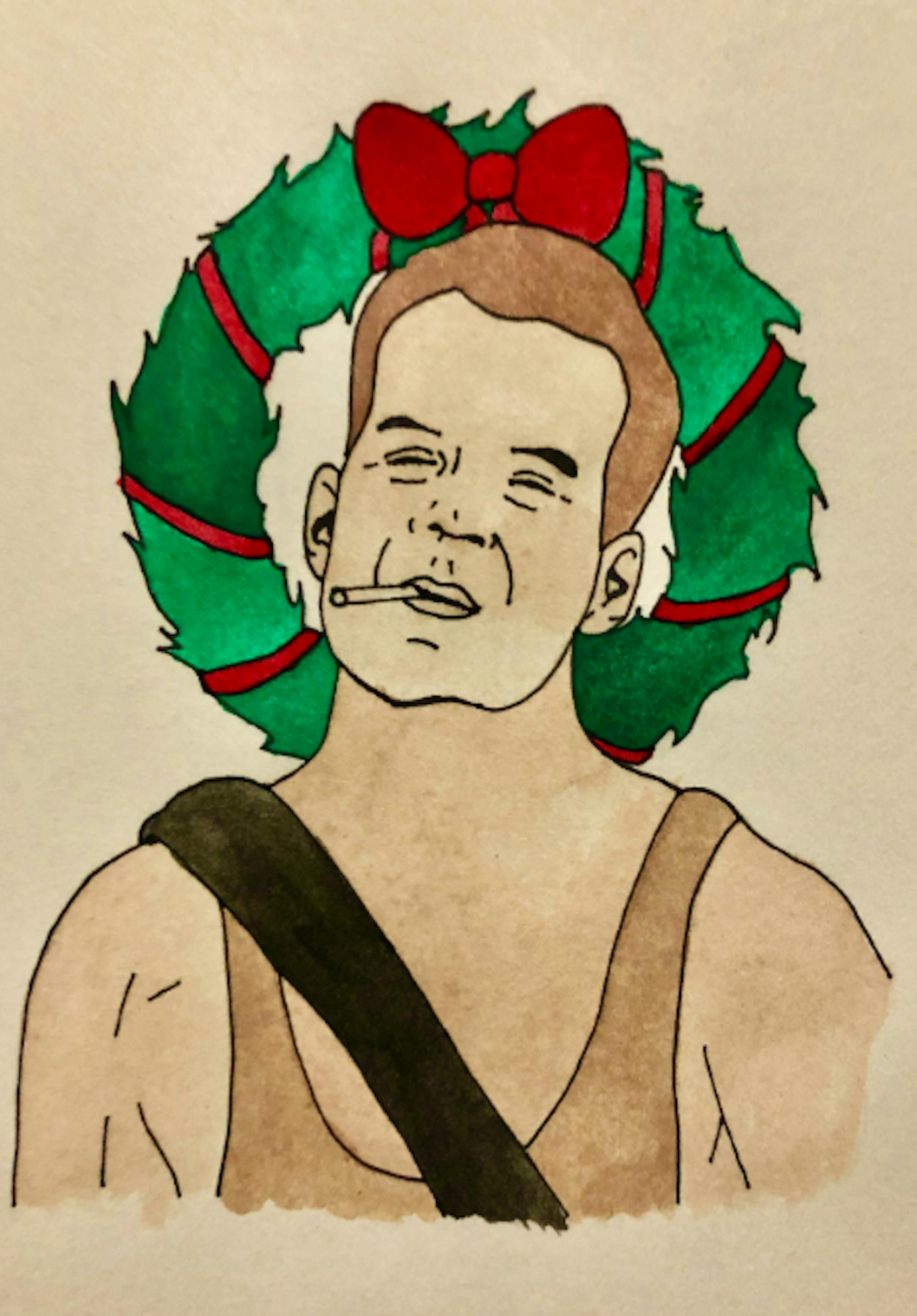Every year around this time, movie fans around the world resume one of the most contentious and longest-lasting debates in film: is “Die Hard” a Christmas movie? The 1988 action (and maybe holiday) film directed by John McTierian and starring Bruce Willis, Alan Rickman and Bonnie Bedelia tells the story of John McClane (Willis), an NYPD officer who must defend his wife and her company from a terrorist takeover on Christmas Eve.
Sometimes, you’ll see a similar argument made about “Harry Potter and the Sorcerer’s Stone,” which is a little ridiculous. The only reason there’s any Christmas scenes in that movie is because it takes place over the course of an academic year. You’ll also see some argue (unsuccessfully) that writer-director Shane Black’s filmography, films like “Lethal Weapon,” “Kiss Kiss Bang Bang” and “Iron Man 3” are holiday movies. I think Shane Black just likes having Christmas lights in his shots.
But with “Die Hard,” an impressive debate rages from both sides. There doesn’t seem to be any consensus on its status in the Christmas canon: not in my friend group, not in Hollywood, not even for the former set members: 20th Century Fox (who distributed the film) called it “the greatest Christmas story ever told.” But Bruce Willis stated that “Die Hard is not a Christmas movie. It’s a g--d--- Bruce Willis movie.”
I don’t know why it can’t be both. To me, “Die Hard” has all the markers of a great holiday movie — not the greatest, as Fox suggests, but certainly great. It takes place entirely on Christmas Eve, and almost entirely at a Christmas party. Hans Gruber’s (the film’s antagonist) plot centers around it being Christmas Eve and the majority of Nakatomi Plaza being empty. It features three Christmas songs (Let it Snow, Winter Wonderland and Christmas in Hollis), and its score contains a medley of other traditional carols.
Most importantly, of course, the film is about family. At the opening, John and Holly (Yes, Holly — another point for me) McClane have been separated for several months — both refusing to compromise when Holly has to move to Los Angeles for work. Over the course of the movie, the two come to realize they truly love each other, and their squabbles matter little in comparison to this fact. Some might say their five or six near-death experiences over the course of the movie led them to this realization, but I think it had a lot more to do with holiday magic.
The case against the movie is flimsy at best. You could say it’s gratuitously violent. Maybe a little, at times. But Richard Donner’s “Scrooged” is pretty violent, and at least twice as dark as “Die Hard” — and I don’t see anyone clambering to re-classify that film.
You could say it was released in July. I’ll tell you “Miracle on 34th Street” (1947) was released in May.
You could also say the plot isn’t really about Christmas — that my “family” characterization is wrong and this is, at its heart, an action movie. It only really exists so we can see Bruce Willis do some cool stunts. That’s when I’ll bring up Frank Capra’s “It’s a Wonderful Life,” the quintessential Christmas movie — that in some ways has very little to do with Christmas. It is chiefly the story of George Bailey. It follows him over decades of his life, his struggles with guilt and depression. Christmas isn’t even mentioned until the third act of the film, and even then the inciting incident of the story is a banking error that just happens to take place on Dec. 24. Yet no one would ever argue “It’s a Wonderful Life” isn’t a Christmas movie. Its enduring message of faith in family and faith in friends has become perhaps the most famous, heartwarming component of Christmas specials.
The only — only — real objection to “Die Hard” being a Christmas movie I can come up with has to do with the type of people who usually make the argument. Almost every time, it’s an attempt to be funny, or edgy, to mock classics like “Christmas Vacation” and “Rudolph the Red-Nosed Reindeer” in favor of an admittedly less traditional choice. It’s a sort of pseudo-masculinity that can’t find a suitable role model in George Bailey. Last year, I summed up my thoughts on the debate by tweeting “Die Hard is absolutely a Christmas movie and if it wasn’t for people trying to be edgy saying ‘Die Hard is my favorite Christmas movie,’ there wouldn’t even be a debate about whether or not it was a Christmas movie.” Indeed, these people actually do the movie a disservice. These hollow arguments are the very reason the debate still rages.
For me, “Die Hard” checks off all the boxes necessary for being a Christmas movie. It’s set on the holiday, it has the right music, the right set pieces, the right themes, the right message. My argument for “Die Hard” is because of these themes and this message — not because I need something blown up to say I like a Christmas movie. Regardless of the arguments against it, and regardless of who usually holds it up as the pinnacle of holiday entertainment, I watch it with my family and friends every December. Besides, it’s Christmas. If a movie brings people together, I think we can count it.
Patrick McKelvey splits his time between being a college senior and pretending to be a screenwriter. He majors in American Studies and classics, and will be working in market research in New York after graduating. If you can’t find him at the movies, he can be reached for comment at pmckelve@nd.edu or @PatKelves17 on Twitter.













